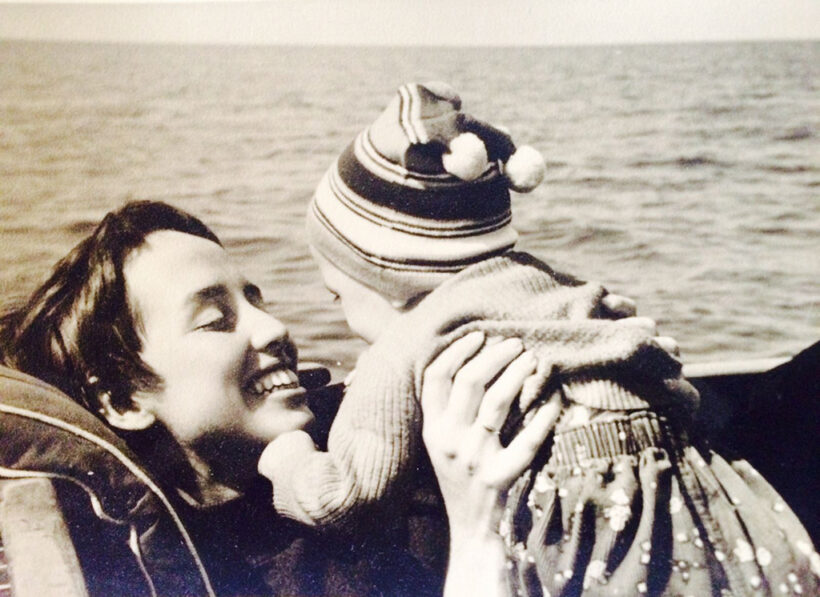25 October 2022, El Espectador
At the time of sending this column I have gone 364 days without hearing my mother’s voice, without a hug from her or finding her at home reading a book about the cosmos or writing another about Proust; for a long year the ringtone that she and only she had: “Paint your face the colour of hope” has not sounded again on my mobile phone.
And even if death is the only door that, no matter what we do or don’t do, is always open -but only one way-, we never get used to it. That incurable lack of those who die lasts as long as one lasts in this world, not a minute less. But grief breathes differently with the passage of time, it changes its texture and one learns to be happy again. Isn’t happiness – or at least the possibility of it – a beautiful way to remember and give thanks? I inherited a motto from my grandfather and my mother: to rescue from the most difficult scenarios every shred of happiness, every glimmer of rebirth. That doesn’t make the shadows disappear, but it helps to value every millimetre of sunshine.
I honour memory, but I do not pay obeisance to pain. And I think constantly of the thousands of reasons Gloria, Yoya, mother, grandmother, great-grandmother and teacher, gave us to celebrate her life; I think of her laughter, the art classes and our theatre trips; the magical flavours she achieved; her chronic allergy to protocol, to the artificial or vain; how much she enjoyed with the children in the challenge of a Lego or looking for shells in the sea. I think much more about all that than about the black hole that pierced my heart on the afternoon of his death. A person who brought so much happiness to so many of us cannot be remembered with sadness.
I know that today’s column is more of a confessional column than an opinion column. And, yes, in this profession complicities are woven with the keyboard and with the readers; in the end, one does not write with one’s hands but with one’s feelings, with what we have seen, what we have been, what has made us love life, embrace it, cry for it and -always and without respite- feel it.
To write is to give words to the commotion of each day.
A few hours ago, I was with a group of journalists and students; in each question windows opened and we talked about that first input, the essential one for writing: to feel the world, to feel it, that everybody hurts, every dream knocked down by bullets; to love interrogations and not stop surprising us; to smell the colour of the air and to know that all pigeons can be messengers. That words are a treasure and each one is one and only one, there will be synonyms, but none sounds and accompanies or saddens like another. We speak of ensuring that voices and silences never go unnoticed, of the sacred commitment to the truth, of the right and duty – against all odds – to defend what one thinks, without setting fire to it, without incriminating or slandering. And we talk about living in learning mode, having the courage to recognise our mistakes and to be humble but not obedient, to be responsible and self-critical, tolerant but not condescending.
There is no remedy: to write we must be willing to let our hearts be read as a map of mourning and celebration, of ruptures, illusions and lessons. It is necessary to have the necessary courage to let ourselves be seen inside and, from honesty, try to approach the hearts of others.
For 364 days now, the woman who gave me life has had hers in another dimension. Today nostalgia took over the keyboard letter by letter and I let her write like that, without any resistance…






